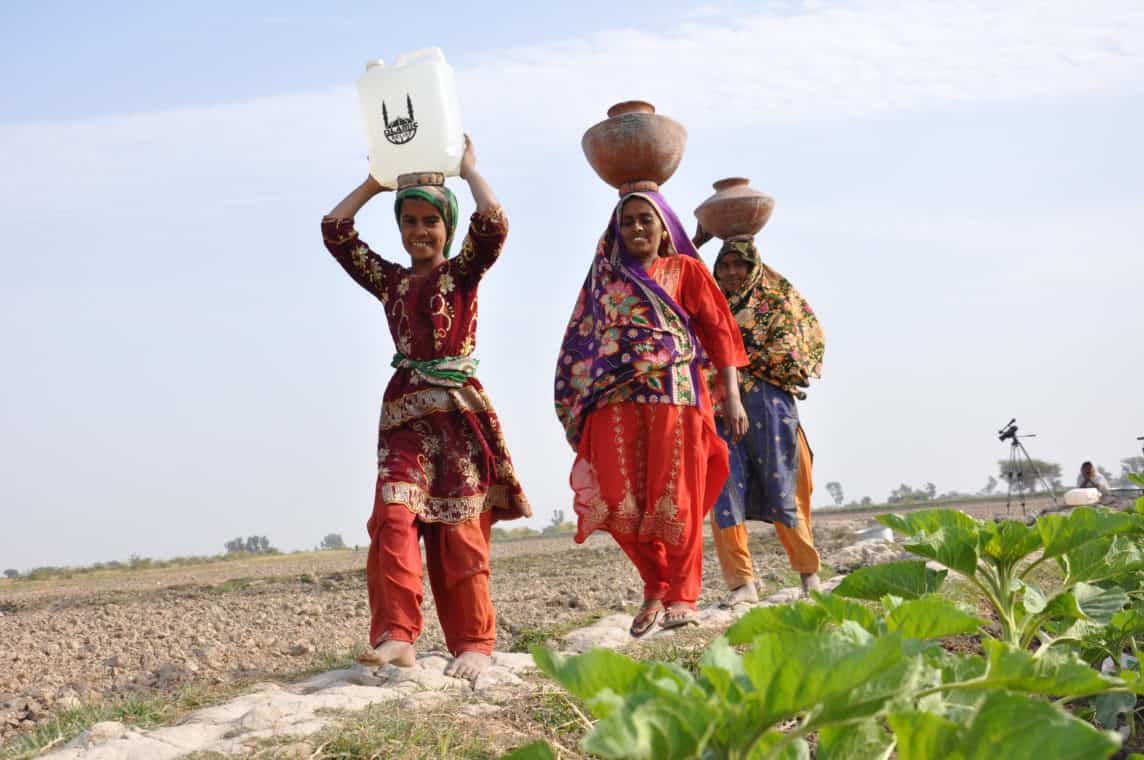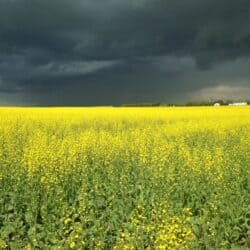As world leaders gathered at the COP26 climate summit, Islamic Relief Canada’s Reyhana Patel called on the Canadian government to take stronger action to protect vulnerable communities, at home and around the world.
World leaders are currently gathered at the COP26 United Nations Climate Change Conference in Glasgow to discuss what more needs to be done to tackle the climate crisis. While Canada is currently not on track to meet its commitments to the Paris Agreement, our leaders are there.
As Canadians, we need to hold them accountable and push them to take stronger action. Canadians’ energy consumption is among the highest in the world and is forecast to remain almost three times the world average. We are also the largest waste producer globally per capita.
Climate change hasn’t always been at the top of my worry list as a Muslim woman – or, indeed, that of my community. But in recent years, the raging wildfires and record summer heat have made me realize that climate change is not some distant theoretical problem – it has arrived here on our doorsteps.
What’s more, working for a humanitarian non-governmental organization, I’ve also seen firsthand the consequences our actions are having on poor and vulnerable communities around the world.
While climate change has dangerous impacts everywhere, it is the world’s poorest communities that are most affected by climate-change-related disasters, whether it be by storms and floods in one part of the world or simultaneous drought and desertification in another. With many populations relying on agriculture for their livelihoods and poor infrastructure in place, one disaster alone can wreak havoc. Often there are limited resources to rebuild, especially in ways that allow communities to withstand future climate catastrophes.
Behind every disaster there are women and children who are the most at-risk within their already vulnerable communities and are being forced to bear the brunt of climate change.
At the COP26 conference, the organization I’m representing, Islamic Relief Canada, will be one of the few Muslim organizations with a voice at the table. I will be there with hundreds of other experts and activists telling the stories of how our actions here in Canada – Canada is the only G7 country whose emissions have increased steadily since the Paris Agreement – are affecting some of the world’s poorest communities. Moreover, I will be talking about how as Muslims we have a sacred duty to protect the environment.
Our faith teaches us that it is each individual’s responsibility to be a “steward” of the earth, and we are encouraged in the Quran to live sustainably, treat all life forms justly, and not to “transgress the delicate ecological balance.”
While faith is a motivating factor, so too is a desire to amplify the voices of those who are most threatened. We often forget that behind every disaster there are women and children who are the most at-risk within their already vulnerable communities and are being forced to bear the brunt of climate change.
I have spent the last decade studying and tackling gender-based violence on the ground, and what we have found at Islamic Relief is that women and girls in developing countries are likely to experience disproportionate levels of suffering after climate catastrophes because of their increased vulnerability in the social order.

This often stems from inequalities and imbalances in power and decision-making, alongside difficulties in accessing scarce resources for the household. A family that has been displaced by a storm or drought may be forced to marry off a daughter prematurely unless they are offered help to see them through an immediate crisis – which, in turn, is an opportunity to change things for the better in the longer term.
The challenges of those in the Global South may seem a world away here in Canada, but, in reality, both the cause and effects of the climate crisis are converging to make it a truly international problem.
The COP26 conference is a vital moment for us to advocate for those most affected by climate change by pushing leaders to take action. It’s the first time that world leaders will do a “Paris Agreement check-in” – and, in doing so, it is vital that we not only look for technological and scientific solutions to the crisis, but also reflect upon and change our insatiable consumerist lifestyles.


